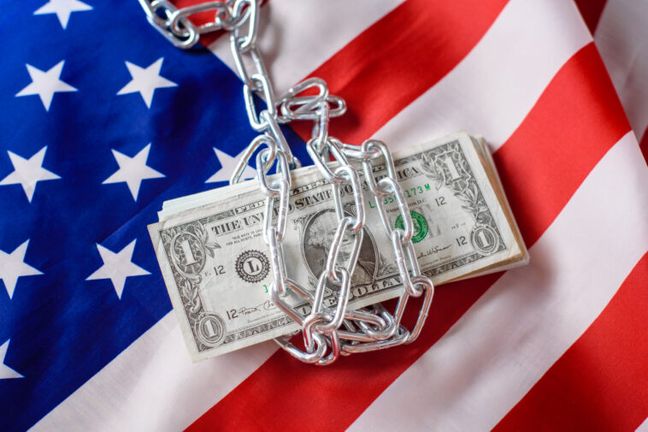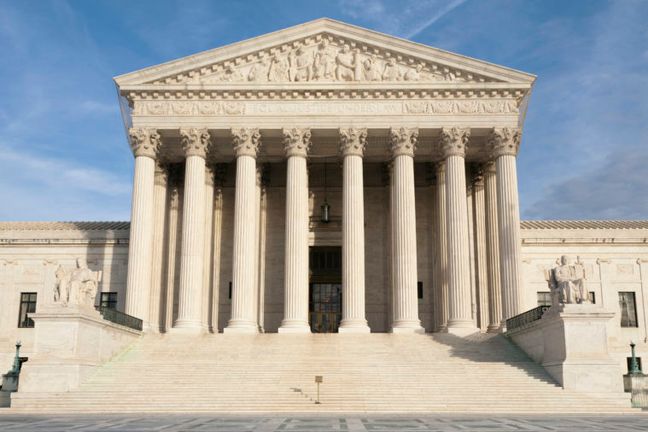There are going to be many challenges as we begin 2021. One such challenge is the expiration of eviction moratoriums. According to a joint UCLA and USC study regarding Covid-19 and renter distress, between 58% and 69% of tenants in Los Angeles lost income due to Covid. In order to make rent payments, tenants have dipped into savings, asked family and friends for assistance, or gone into debt. Furthermore, according to the study, 10-20% of the tenants could not make complete rent payments.[1] This means many tenants will have to pay current and back rent this year.
Adding to this financial burden, these tenants will likely have additional payments, such as paying their family members, payday loans, student loans, and credit cards. Compounding the problem, the U.S. Bureau of Economic Analysis reported even though personal income and government social benefits declined in the last half of 2020, personal consumption increased.[2] This suggests individuals have taken on even more debt.
The American Public is Becoming Angry with Landlords
“The only goal of trial is to get money for your client,” says plaintiffs’ bar leading book on damages.[3] In the past, landlord/tenant lawsuits were not high-value lawsuits. Jurors simply did not get angry enough with landlords who did not replace the ugly carpet. Thus, landlord/tenant lawsuits were smaller dollar cases driven up through the number of plaintiffs instead of through plaintiffs’ common tactic of angering the jury, especially when an attorney’s fee provision was in the lease.
However, since Covid-19 began, the local and national media has elevated citizen/potential juror anger against landlords. Weekly television and print articles highlight the “evil” landlords who send insensitive letters to their tenants. There have been many featured stories regarding a few miserly landlords who threw families impacted by Covid out of their homes. Unfortunately, these 30‑second soundbites may not capture the full circumstances. All viewers and readers see are greedy and evil landlords who want to enjoy dinner at the French Laundry while their tenants’ children must use Taco Bell Wi-Fi for Zoom school.
The media is doing plaintiffs’ bar’s work and preconditioning juror anger. Now, the playing field is set for the lifted eviction moratoriums and past rent coming due. Plaintiffs’ bar is ready to leverage this anger. Thus, landlords should begin asking what they can do to potentially preempt a nuclear verdict.
What Can Landlords Do?
- Eliminate the Attorney’s Fees Clause
The first thing all landlords should do is check for an attorney’s fees provision in their leases. The attorney’s fees provision is essentially a green light for any plaintiff’s attorney to bring a lawsuit. The tenant may win a nominal amount, but the attorney will win thousands. Furthermore, even if the landlord gets a full defense verdict, the tenant is more likely than not to be judgment proof. Now is an ideal time to negotiate a new lease without this attorney’s fees provision, perhaps forgiving some rent or extending payments of back rent in exchange.
- Personalize the Landlord
The media is currently portraying landlords as the villains of Covid. Thus, landlords must draft their own narratives and personalize themselves. This is not a one-size-fits-all narrative. A single, retired family who rents out a home is different from a large, national property management firm employing hundreds of people. Every landlord should think of all documents as putative exhibits and use each opportunity to personalize themselves. Correspondence sent to tenants should be a piece in the story about a compassionate landlord. For example, the landlord can discuss charities it contributes to, how the landlord helps families with Covid (or other causes) and supports first responders, or people the landlord employs, including independent contractors.
When the loss of rent adversely affects landlords (e.g., they cannot make mortgages or other related financial obligations), they should document all available measures they used to seek relief. Many resources are available on government websites and at bank institutions. This can also become evidence to personalize the landlords’ struggle as a victim of Covid. In that case, a jury may have a hard time unreasonably “punishing” a landlord who tried everything to stay afloat while caring for their other tenants.
- Take Responsibility for the Good Things
Even if landlords are not receiving rent, they still have to maintain the property in a legal habitable condition. Therefore, the landlord must retain evidence to show a jury it acted as a responsible landlord. A jury can see a landlord is responsible when it hires credentialed independent contractors, present records of timely repairs, and responds to communications timely and in writing.
Should a landlord need to evict someone impacted by Covid, a responsible landlord might allow that party reasonable time to produce documents that comply with the government’s laws surrounding the eviction moratorium. Indeed, the landlord may elect to give the tenant a printout of the government’s instructions covering the eviction moratoriums (and put a copy in the tenant’s file). This could help preclude a later plea to the jury regarding the tenant’s Covid circumstances. Regardless, the landlord is acting responsibly.
Takeaway
In conclusion, with rent coming due in 2021 and the news preconditioning juror anger, it is more important than ever for landlords to use their resources to: (1) be a responsible and compassionate landlord, and (2) personalize themselves and show the good. Finally, if nothing else, landlords should remove attorney’s fees provisions from their leases.
[1] Manville, Monkkonen, & Lens, COVID-19 and Renter Distress: Evidence from Los Angeles, UCLA Reports (August 2020).
[2] Personal Income and Outlays, November 2020, U.S. Bureau of Economic Analysis, <https://www.bea.gov/news/2020/personal-income-and-outlays-november-2020>
[3] David Ball, David Ball on Damages 3 1 (Trial Guide LLC, 3d ed. 2013)

 Author: Rob Olson
Author: Rob Olson
 Cannabis Workers Allege Quota to Trim 4 Pounds a Day Violates the California Labor Code
Cannabis Workers Allege Quota to Trim 4 Pounds a Day Violates the California Labor Code
 The Ninth Circuit Reminds Us: Every Word Matters
The Ninth Circuit Reminds Us: Every Word Matters
 NO WAY, PRO SE! The Consequences of Abusing the Judicial System as a Pro Se Litigant in Colorado
NO WAY, PRO SE! The Consequences of Abusing the Judicial System as a Pro Se Litigant in Colorado
 Victim of Financial Mismanagement or Unlawful Retaliation? New Jersey City University Program Founder Claims School Retaliated After Reporting Alleged Sexual Harassment
Victim of Financial Mismanagement or Unlawful Retaliation? New Jersey City University Program Founder Claims School Retaliated After Reporting Alleged Sexual Harassment
 “Real Housewives” Gets a Reality Check
“Real Housewives” Gets a Reality Check
 Missing a Chapter: Insufficiency of Expert Deposition Testimony in Medical Malpractice Litigation
Missing a Chapter: Insufficiency of Expert Deposition Testimony in Medical Malpractice Litigation
 Crash Course: Why Summary Judgment Misses the Mark in Illinois Multi-Cause Limousine Crash Collision
Crash Course: Why Summary Judgment Misses the Mark in Illinois Multi-Cause Limousine Crash Collision
 Bitter Truths: Lead, Cadmium, and Defective Pleadings in California Chocolate Class Action
Bitter Truths: Lead, Cadmium, and Defective Pleadings in California Chocolate Class Action
 The Law of Unintended Consequences: Including Insurance Brokers in Litigation Strategy Communication May Waive the Attorney-Client Privilege
The Law of Unintended Consequences: Including Insurance Brokers in Litigation Strategy Communication May Waive the Attorney-Client Privilege
 5 New Ways to Evaluate Cases in Light of Skyrocketing Social Inflation
5 New Ways to Evaluate Cases in Light of Skyrocketing Social Inflation
 To The Victor Goes the Spoils… All of the Spoils
To The Victor Goes the Spoils… All of the Spoils
 Florida Jury Awards $50 Million in Habitability/Mold Case
Florida Jury Awards $50 Million in Habitability/Mold Case
 Leveling the Playing Field: Defense Counsel Used “Honest Fouls” in California and Beat a $16 Million Jury Demand
Leveling the Playing Field: Defense Counsel Used “Honest Fouls” in California and Beat a $16 Million Jury Demand
 California’s Supreme Court Opens a Path So Plaintiffs Can Recover Greater Nuclear Verdicts™ Against “Deep Pocket” Defendants
California’s Supreme Court Opens a Path So Plaintiffs Can Recover Greater Nuclear Verdicts™ Against “Deep Pocket” Defendants
 The California Court’s “Fastpass” to Trial within 120 days – Considerations in Approaching California’s Preference Statute in a Post-Pandemic World
The California Court’s “Fastpass” to Trial within 120 days – Considerations in Approaching California’s Preference Statute in a Post-Pandemic World